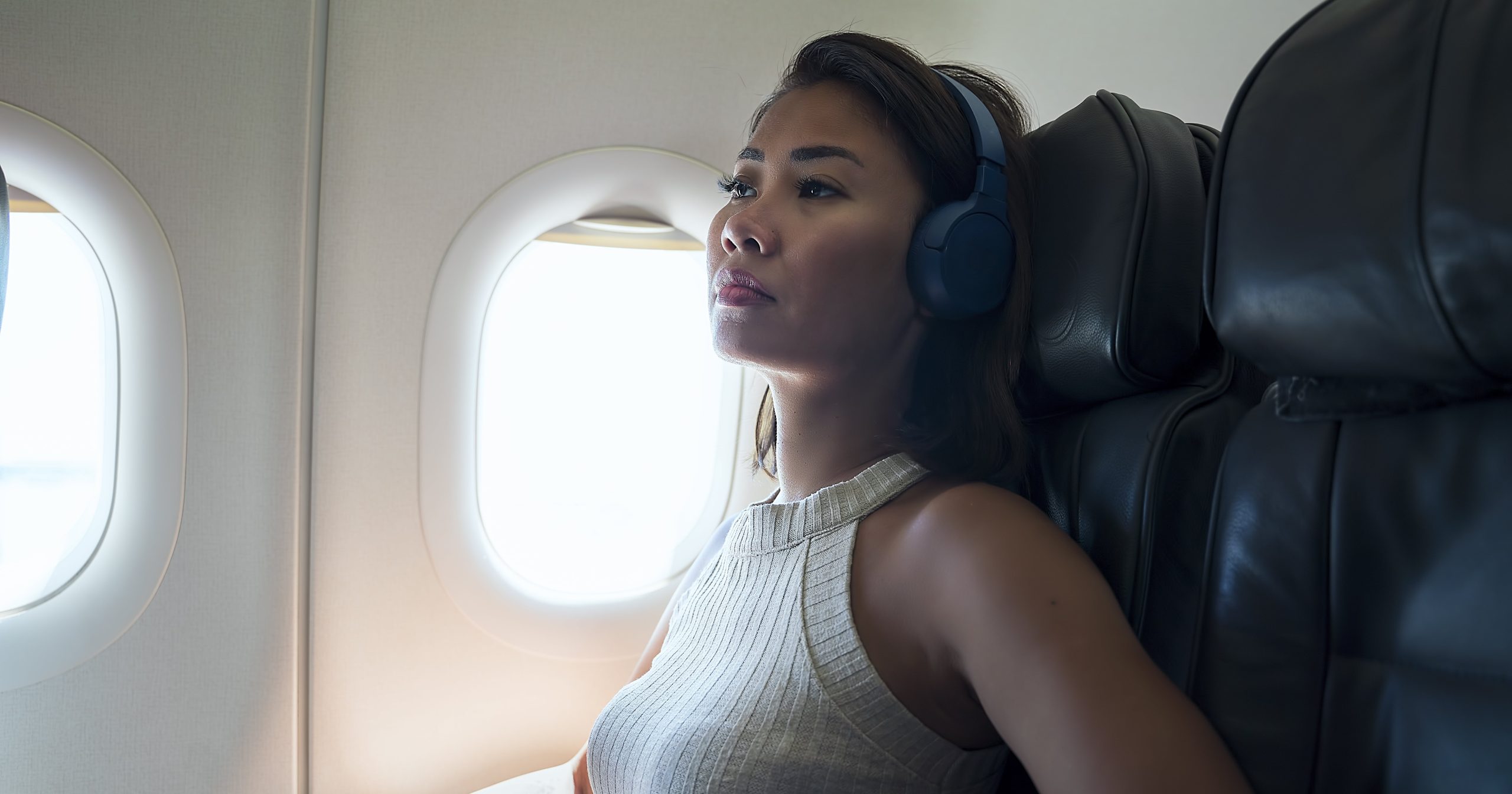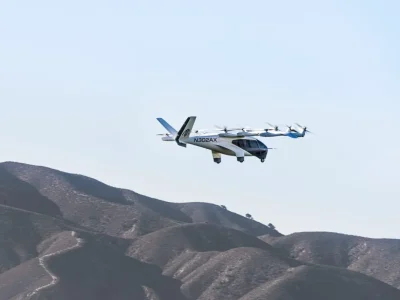“Is anyone else feeling weird about flying right now?” one of my friends asked our group chat this week as we discussed upcoming work trips and vacations. She was, of course, referencing the barrage of plane-crash headlines that have overwhelmed our newsfeeds since the start of 2025. As much as I hated to admit it — especially as someone who travels frequently and has never experienced an ounce of flight anxiety before — the newsworthy accidents have been unsettling, to say the least.
And my friend group certainly isn’t alone in our uneasiness. “Many people are experiencing heightened anxiety around air travel since hearing recent news,” says Rebecca Skolnick, PhD, licensed clinical psychologist and co-founder of MindWell NYC. In other words: Your fears are completely valid and I am right there with you. But I also know how much I love to travel. There’s something about exploring a new place and learning about an unfamiliar culture that makes me feel wholly like myself — it’s when my mind is most at ease, and when I feel the most free.
So before letting intrusive thoughts steal something that brings me so much joy, I decided to consult Dr. Skolnick on how to approach newfound travel anxiety, for myself and anyone else who might relate.
Experts Featured in This Article:
Rebecca Sholnick, PhD, is a licensed clinical psychologist and co-founder of MindWell NYC.
What to Do When You’re Afraid to Fly
Whether you have never experienced stress about air travel or you’ve dealt with aviophobia (fear of flying) for years, there are a number of techniques and strategies that can help you quell those fears.
Check the Stats
Look at how many flights successfully took off and landed even since the most recent crash. Reviewing the data can help ground you in the reality that the likelihood of a plane crash is still very low.
“We are certainly hearing about [plane crashes] more than we used to, and that still doesn’t mean it is likely to happen to you,” Dr. Skolnick says. “The majority of flights do not crash. We tend to react strongly to news we hear most recently, so it’s also important to look at the news in context.”
As for those exact stats: In January 2025, there were 62 total reported airplane accidents reported nationwide, compared to 80 in January 2024, according to CNN. They also report that there have been fewer fatalities on scheduled commercial airliners over the last 15 years than any other 15-year stretch, meaning it’s safer than ever before. The reason we’re likely hearing more about crashes now is because they occurred on commercial airlines — rather than private planes, where the majority of accidents occur yearly — and some of these crashes tragically involved fatalities. Nevertheless, “remember not to overgeneralize — just because it has been happening more recently doesn’t mean every plane is going to crash now,” says Dr. Skolnick.
Make a Plan for the Flight
What are you going to do to pass the time? Read a book? Listen to your favorite podcast? Watch a movie? Having a strategy in place for a healthy distraction to occupy your mind from takeoff to landing can help reduce anxiety and keep your mind busy from ruminating on what-ifs, says Dr. Skolnick.
Employ a Relaxation Technique
If you’re feeling on edge, try practicing a few relaxation exercises, like progressive muscle relaxation (a technique that involves systematically tensing and then releasing different muscle groups throughout the body) or deep diaphragmatic breathing to calm your nervous system, Dr. Skolnick suggests.
Reference Past Experiences
Think about all the times you’ve safely traveled on a plane. Consider each experience flying as an experiment to test out the validity of your fear of crashing — every time it doesn’t, take note of that as data that goes against this prediction.
It can also be helpful to acknowledge that there’s always a level of risk and uncertainty with flying. “Just as there is when driving a car or crossing the street or frankly walking outside,” says Skolnik. “We all have to tolerate risk and uncertainty every day. So it can be helpful to think about times you have been able to tolerate risk and uncertainty in the past, and use that when flying.”
Of course, if you’re still feeling anxious about traveling — by plane or otherwise — that’s OK, too. Give yourself time to adjust and employ some of these strategies. And if those anxieties are taking a toll on your mental health, consider seeking help from a therapist.
The reality: Traveling by plane is still a safe method of transportation. It’s a means by which we can visit friends and family, see the world, and learn from other people and cultures. And I hope that with time, and potentially a little help, it will feel that way again to us all very soon.
Kristine Thomason is a lifestyle writer and editor based in Southern California. Previously, she was the health and fitness director at mindbodygreen and the fitness and wellness editor at Women’s Health. Kristine’s work has also appeared in PS, Travel + Leisure, Men’s Health, Health, and Refinery29, among others.










